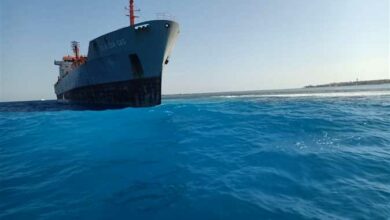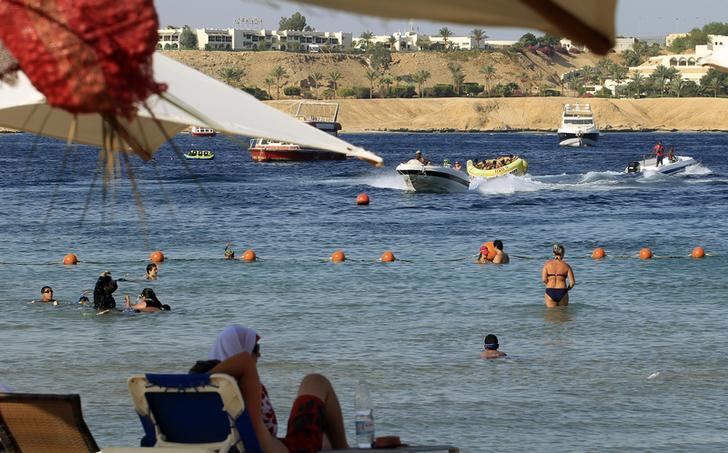
Anyone arriving at Tiran island will be fascinated by the rare coral reefs, colorful fish and singing birds.
This beautiful island is largely uninhabited, aside from a few Bedouin fishermen, Egyptian security forces and international peacekeeping forces, all located on the far side, which faces the sister island of Sanafir.
The only people arriving by sea on a regular basis are the fishermen, who travel in small boats, picking their way through the coral reefs.
According to an agreement between Egypt and Saudi Arabia last week, Tiran and its sister island of Sanafir were handed back to Saudi control after more than 60 years under Egyptian protection.
The move came as part of a demarcation of the maritime borders between Egypt and Saudi Arabia, placing the islands within Saudi territorial waters.
While no statements have been made on the subject so far, fishermen using the islands fear that the new development could mean a threat to their livelihood.
If Saudi Arabia bans Egyptian Bedouin fishermen from the area, they will be putting an end to a traditional way of life stretching back generations. In which case, say the fishermen, they will be in need of new jobs, and they expect the goverments of Egypt and Saudi Arabia to provide them.
Al-Masry Al-Youm was able to visit Tiran a few days after the agreement, speaking with fishermen about their fears and what the new deal means to them.
Our team of journalists arranged with a fisherman to take them on the sea-crossing, starting from the Nabaq,just a few kilometers from Sharm El Sheikh. After the captain had checked on the weather conditions, we set out at 2 p.m.
Before we set sail, a helicopter was seen coming from Tiran. It provides a link for the international peacekeepers located on the island, ferrying their supplies on a daily basis.
Not far from Tiran, we saw the Saudi island of Um Hamid. There were the burnt-out shelters of the fishermen, along with piles of shells and dried fish. The island, which is 87 km long, had nobody on it.
Also visible are the navigational routes used by huge ships passing through the Straits of Tiran, to and from the Gulf of Aqaba.
Setting foot on the far side of Tiran, we found hundreds of Bedouin fishermen, keen to share their views on the new deal and what it might mean for them.
Some said that their grandfathers had lived on the island and had been buried there. They said their families had fished there for 150 years, giving them a clear sense of belonging.
Ouda Alian, 55, the chief of Tiran's community of fishermen, said he had fished off Tiran and Sanafir since he was 15 years old. The fishermen had lived on both islands each summer, he said, and were allowed to fish on the islands even under the Israeli occupation.
He said that he is not against the Egyptian government's agreement with Saudi Arabia, but he urged the government to compensate those who might be harmed by the decision, guaranteeing their right to fish there in future.
Another fisherman, Farag Ouda, said, “We want to continue fishing there. The government has not not provided us with facilities or services.”
Ayed Meneify, another fisherman, wondered how he would make his living if Saudi Arabia banned them from fishing there, saying they do not have any other job.
Ismail Mahmoud, a fisherman from the Al-Mazianah tribe, said that he fears Saudi Arabia will indeed ban fishing on the islands, and if so, then they should find new jobs for the fishermen.
Another fisherman from the same tribe named Farrag Sayyad, said, “Our grandparents used to fish here for 150 years.They used to preserve the nature and environment there.
“The bridge is good, but the agreement is a loss for the country,” he said.
Edited translation from Al-Masry Al-Youm




